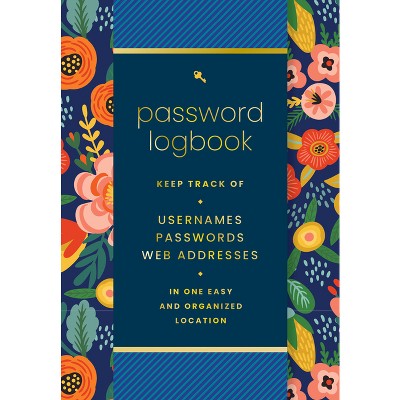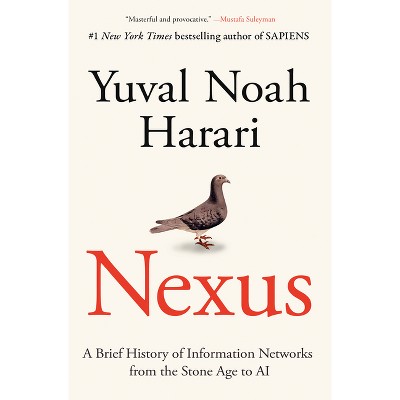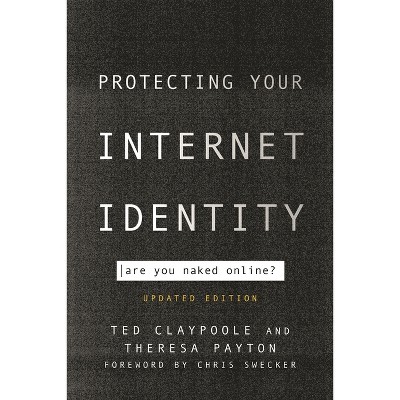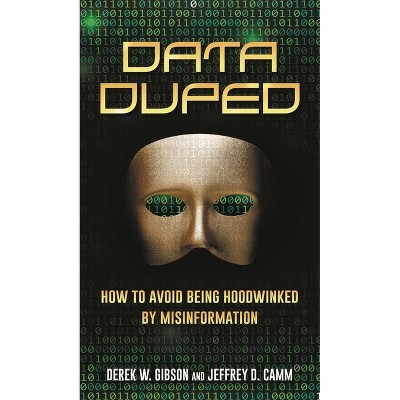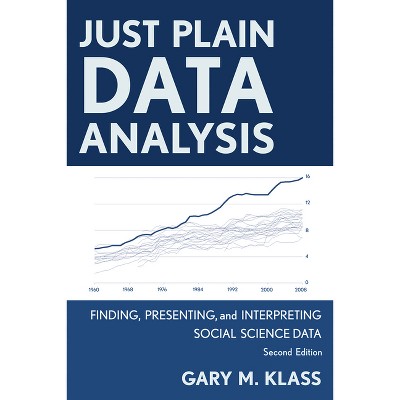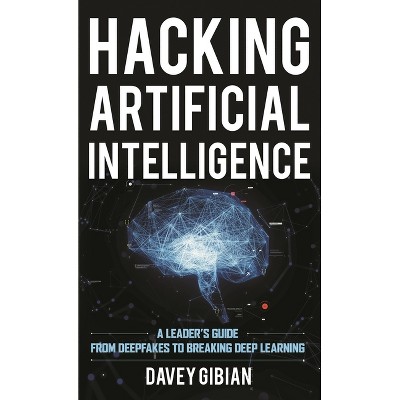Privacy in the Age of Big Data - by Theresa Payton & Ted Claypoole (Paperback)

About this item
Highlights
- Digital data collection and surveillance gets more pervasive and invasive by the day; but the best ways to protect yourself and your data are all steps you can take yourself.
- About the Author: Theresa Payton isone of America's most respected authorities on Internet security, net crime, fraud mitigation, and technology implementation.
- 328 Pages
- Computers + Internet, Security
Description
About the Book
Digital data collection and surveillance gets more pervasive and invasive by the day; but the best ways to protect yourself and your data are all steps you can take yourself. Understanding new technologies and surveillance measures, the benefits they provide, and the data secu...Book Synopsis
Digital data collection and surveillance gets more pervasive and invasive by the day; but the best ways to protect yourself and your data are all steps you can take yourself. Understanding new technologies and surveillance measures, the benefits they provide, and the data security we give up in order to enjoy them helps us understand our best protection measures. Individual behaviors as well as legislative advances can soften the trade-off of security, and convenience, over privacy. This book analyzes why privacy is important to all of us, and describes the technologies that put your data most at risk, starting with modern computing and the Internet.Review Quotes
[Data] tracking can always be used by nefarious individuals or groups, but it is part of the way we live now. It is as though highways were also fraught with piracy. That's the kind of thing we're dealing with. This is the discussion of the era, and this book is smack in the middle of it.
Every informed American needs to know more about today's privacy-invading technologies and what to do about them. This book explains the problems in a readable and lively way. It provides expert and timely insights about the technology, law, and policy for privacy in this age of Big Data.
Former White House Chief Information Officer Payton and lawyer Claypoole, authors of Protecting Your Internet Identity, team up again to produce this quick and easy overview of data collection and its relevance in our everyday lives. The authors guide readers through the many ways our personal information is collected and used in today's society. They are quick to point out the beneficial aspects of technological advancements in commercial, private, and government settings. However, any collection of personal data is susceptible to malicious use. The authors go on to elaborate on the everyday possibilities of hacking, wiretapping, and other big data strategies by marketers and cybercriminals. Most alarming are the implications of data mining for everyday citizens: cybercriminals can and will steal any information, through government or commercial enterprises. Payton and Claypoole provide practical tips and tools for protecting personal data throughout making this a perfect beginner's guide for anyone looking to stay informed.
I think people out there don't realize there's this whole underground economy out there, knives and daggers, people out there trying to get any piece of your data at any cost and at the end of the day we're the ones who will pay the price. . . This is great advice.
If you value your privacy, this book is an absolute must read. So many of us have no idea how much of our daily lives is captured, stored and in the possession of someone else. Privacy in Age of Big Data will enlighten you as to how much of your private life is being digitally acquired without your permission or knowledge.
Once again, Theresa Payton and Ted Claypoole have provided a thorough examination of the unforeseen consequences that our plunge into the digital age has had on our traditional notions of privacy. Their latest endeavor, Privacy in the Age of Big Data, clearly articulates the impact that a myriad of seemingly innocuous technological advances have had on our daily lives, many of which have irreparably undermined our ability to control the deluge of personal information that is being collected, archived, analyzed, and ultimately leveraged for everything from marketing and advertizing to law enforcement and criminal activities. Payton and Claypoole look beyond the obvious ramifications of over-sharing online and the spread of surveillance mechanisms in the public domain, further delving into the corrosive nature of a world inundated with privacy depriving technologies that now touch every aspect of our society, as well as providing an analysis of the legal and political consequences that our desire for convenience through ever more connectivity has wrought. Privacy in the Age of Big Data is a timely and captivating study of our brave new digital world.
Payton and Claypoole intend this book as an overview of the threats facing private citizens in the era of cloud computing and big data. Discussions of privacy in this time take as their departure point the problematic nature of cloud-based computing and of the storage of massive amounts of personal data by businesses, governments, and devices connected to the cloud. The threats reviewed include those associated with mobile access and tracking individuals' locations, Internet viewing, and the ubiquity of cameras as peripherals on devices. The final section details mitigating risks to individual privacy and reviews legislative efforts that could help. VERDICT Well-researched and well-written, this timely and important addition to the literature on privacy and big data will resonate with researchers of information policy and related legislation.
People of all ages are increasingly confused about who is collecting their data and why the collection itself could lead to a loss of privacy. Privacy in the age of Big Data by Theresa Payton and Ted Claypoole provides a thoughtful and balanced view on how to harness the power of big data to make it work for you while maintaining the security and privacy of your company and your personal life. Unlike other books, they don't just leave you feeling a sense of dread, they walk you through the steps you can take to combat the threats, know your rights, and protect the privacy and security of your loved ones in the age of big data and surveillance. This book is a must read for all of us that live in this digital age.
Privacy in the Age of Big Data is a timely publication and one that should find a wide readership in a digital and online landscape that is often only partially understood. As archivists, managing digital data and navigating the cyber world is increasingly important, and this is also true of our social lives. When at work there is a level of protection, or perhaps control, by our employers' infrastructure: IT services manage and monitor our email and intranet, passwords must be regularly changed or account access will be suspended, security scanning is undertaken as a matter of course, and born-digital material, both published and unpublished, is treated with all the complex care and attention warranted by such vulnerable items. At home the picture might be somewhat different. Reading this book has compelled a change in this reviewer's digital habits at home and at work, providing the impetus to take charge of my digital and online life. Further, it has opened up my understanding of the digital landscape, providing insights and prompting research into new areas that can only be of service in my role as an archivist. In a cyber world as complex as the one here described, a prompt to attend to the many connected issues both in and out of the archival world is a valuable outcome. This book serves to accentuate the problems and pitfalls of data management in a digital world, whether that data is found in our bodies, homes or in the archive. It provides a thoughtful and readable consideration of the complex interaction of the digital and physical spheres, highlighting the many dangers but always providing practical means to increase understanding, develop useful strategies, and mitigate potential risks.
Privacy in the Age of Big Data is a valuable source of information, no matter how much you know about cybersecurity; for those who are just starting to protect their data, however, you won't want to let this book out of your sight.
Privacy in the Age of Big Data: Recognizing Threats, Defending Your Rights, and Protecting Your Family, accomplishes this feat in lay person's language and in a clear and concise manner. I recommend it should be read by everyone - from grandparents to teens, from corporate America to the homemaker. Safety and security starts with being aware and educated, and reading this book is a must!
Technology has improved our lives dramatically over the past two decades, yet there are emerging concerns with the ubiquitous digital collection of private information. Privacy in the Age of Big Data is a thorough look into the growing vulnerabilities we face; Payton and Claypoole explore all aspects of these dangers...effectively raising the reader's awareness, and providing solid recommendations to protect yourself and your most sensitive information.
The Pew Internet Research Center noted that 74% of teens use their cell phone for internet access and almost 25% of teens use cell phones almost exclusively to conduct their digital life on the internet. Parents and kids need a guide in the digital age and Payton and Claypoole are your new sherpas to protect your family. Although every chapter of the book has great advice for families, parents and kids should pay special attention to Chapter 6 - The Spy In Your Pocket. This chapter will help parents illustrate to their kids why their words and actions matter. Privacy in the Age of Big Data by Theresa Payton and Ted Claypoole will walk you through the solutions that can help your kids have fun while protecting their privacy and security. A must read for everyone!
About the Author
Theresa Payton isone of America's most respected authorities on Internet security, net crime, fraud mitigation, and technology implementation. As White House Chief Information Officer from 2006 to 2008 -- the first woman ever to hold that position -- she administered the information technology enterprise for the President and 3,000 staff members. Prior to working in federal government, Payton held executive roles in banking technology at Bank of America and Wells Fargo. Payton is the founder of Fortalice, LLC, a security, risk, and fraud consulting company. In 2010, she was named by Security Magazine as one of the top 25 "Most Influential People in Security." She, also, serves as a cyber-expert for the syndicated program America Now and is co-author of Protecting Your Internet Identity: Are You Naked Online? (Rowman & Littlefield, 2012).
Theodore Claypoole is a technology attorney and is currently cochair of the Cyberspace Mobile Commerce Subcommittee for the American Bar Association's Business Law Section. Ted is the author of chapters in published books on biometrics and data security, as well as several articles on Internet security and Internet law. He is currently leader of the Privacy and Data Management team at the law firm Womble Carlyle. He leads data breach incident response teams in the financial, information processing, retail, and software industries. Ted consults on information security, privacy, consumer data treatment, and contingency planning matters, and advises clients on strategic technology and marketing alliances. Ted was previously the in-house technology and Internet counsel for CompuServe and Bank of America.Shipping details
Return details
Trending Computers & Technology Books

